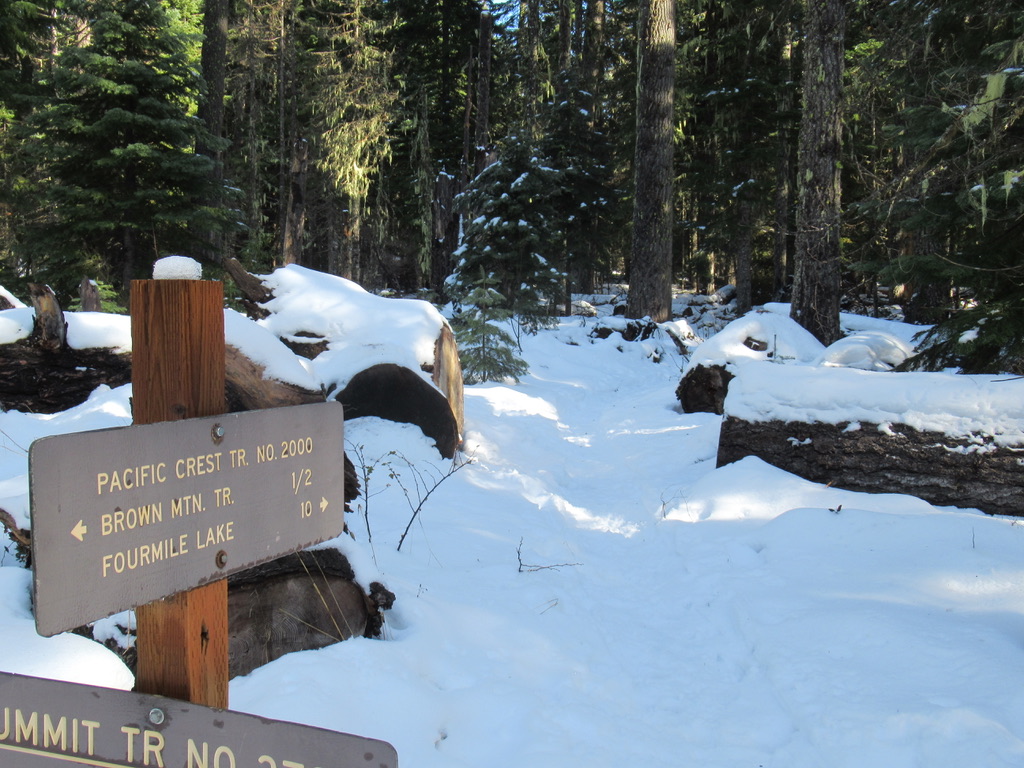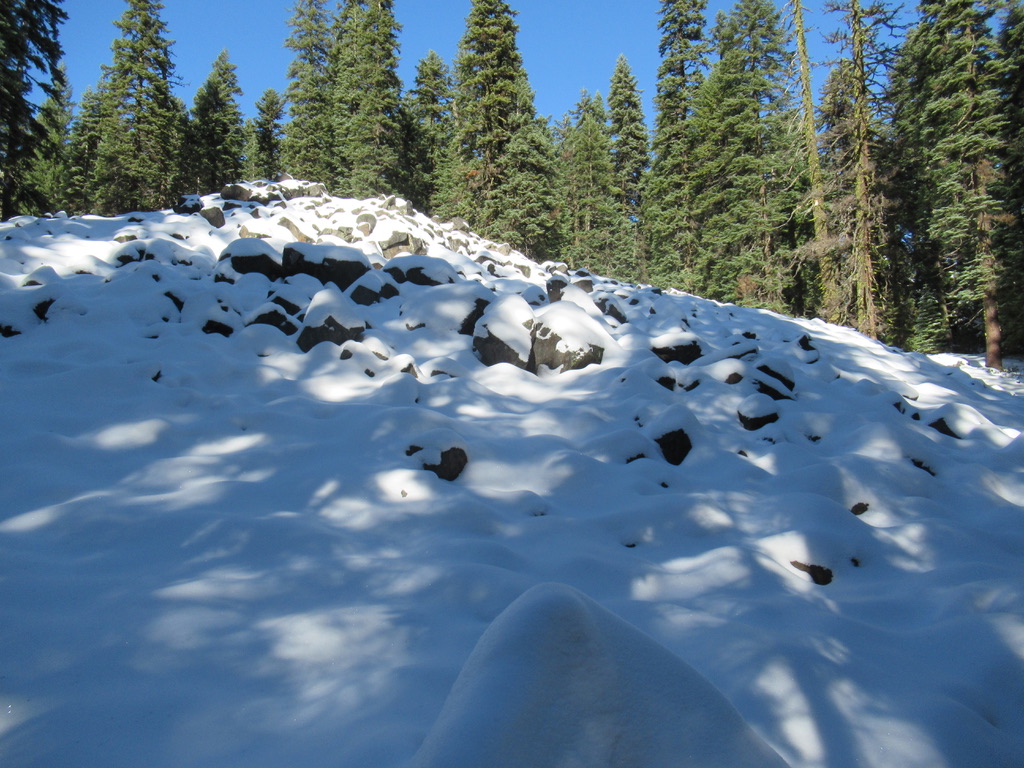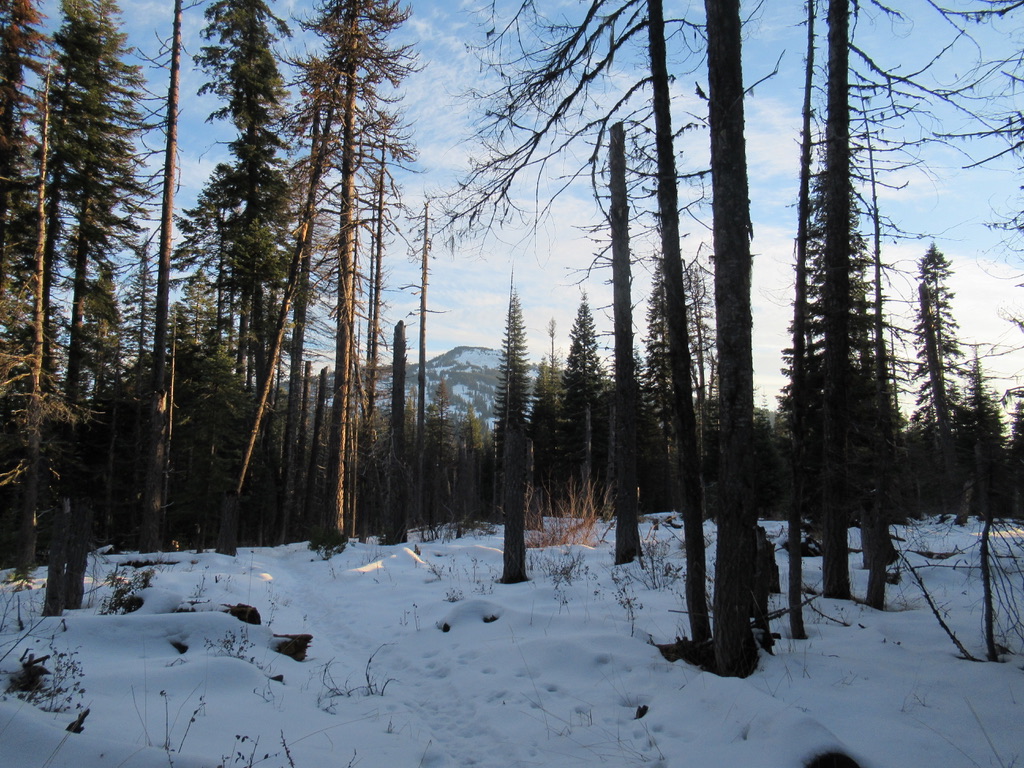
Today it’s Wayne Shorter, the eminent Jazz Saxophonist. Shorter is the front man and composer of this album, Speak No Evil, but the other members of his quintet are each legends in their own rights: Freddie Hubbard, trumpet; Herbie Hancock, piano; Ron Carter, bass; Elvin Jones, drums.
One might expect a collection of such jazz heroes to engage in a wrestling match of egos, but that’s not how jazz works. The flashy solos and technical passages are only the visible surface above a deep lake, and any musician with an ounce of self-respect will listen at least as much as he plays, respond and support at least as much as he leads. The worst mistakes in jazz are errors of commission rather than errors of omission, which is another way of saying that restraint is the better part of valor.
I’m driving on the northern side of Upper Klamath Lake, making a circuitous route toward Mt. McLouglin. It’s my last day in the Klamath Basin, at least for now, and I’ve decided to climb the volcano, as far as I can on this short winter day, for a bird’s-eye view of the basin.
The melody of the title track hollers its dissonance lazily as the trees whoosh by, as smoothly comfortable in tension as in repose; Hancock’s harlequin piano jests around the edges while Carter’s bass patters along with the fwop, du-thup thip of tar-sealed cracks and bumps against my tires. There is snow on the ground, but not on the road, and fog lets me forget enough of the world to float freely through this small stretch of highway.
I pass a sign—Volcanic Legacy Scenic Byway—and a small crew pulling down charred trees along the roadside. I don’t know whether or not this is part of the same complex of fires that charred the southern shore of Tulelake, but either way it occurs to me that wildlife is running out of places to flee. The woods give way to farmland and pasture, which finally give away again to thick forest as I start to ascend the base of the mountain toward the trailhead.
I pull into an icy, empty parking lot a little after 10am. My roundabout drive cost me more time than expected, and I won’t make the summit today, but I’m not out for bragging rights, just a walk and a little time among the trees.
The trail is covered in snow, but several someones have cut a path with snowshoes and boots, maybe even some skis, and it’s easy going. It looks like about a foot of snow has fallen, but I’m able to keep my trail runners dry as I begin to ascend. Aside from the crunch of the path under my feet and the hiss and sizzle of melting water falling from tree branches onto the snow below, it is silent. The impending winter has driven most animals into hibernation or migration, and it has come sooner here at high elevation.
The Klamath Basin was once a land teeming with life, and now it is not. The pressure on wildlife came first from the farms and fences that transformed the land and restricted movement. Then the need for better farmland led to the draining of the lakes that provided habitat. That led to a need for more irrigation, and the Bureau of Reclamation stepped in with the Klamath project, the dams and canals that cut off the waterways that provided a flow of fish and nutrients. That led to algae blooms that poisoned the waters for fish and birds. At the same time, the pesticides and fertilizers used by the farms were running off into the waterways, poisoning the water further and destroying the diversity of life. In drought years, the over-allocated water was given to farmers and ranchers with little left over for the basin lakes, which drained the basin lakes further. And permeating it all were the effects of climate change, which have been stressing the ecosystem, changing migration patterns, and contributing to massive forest fires that scorch the soil so deeply that recovery is slow in the places where it is possible.
I turn on to the Pacific Crest Trail. I have walked the full length of it and remember generally where I am at, but much of the forest blends together and I can’t remember the specifics. It occurs to me that such complexity and variety is difficult to hold in the mind. It seems parallel to the complexity and variety of environmental problems that beset the Klamath Basin, and to an even larger extent, the world: they are too complex for a ready-made, top-down solution. As we try to solve one problem, we often create another.

I pass a pile of basaltic rubble that forms a slope by the side of the trail. The round rocks are dusted with snow—they look like an arsenal of large snowballs laid away for a snow battle. The basalt is the result of lava flows from Mt. McLoughlin, a reminder of the slow geologic forces that shape the land.
Speak No Evil is still playing in my head, but the individual solo lines are gone. What remains are the underlying harmonies and the main melody, what musicians call the changes and the head. Before a jazz musician ever begins improvising, they have to learn the changes and the head so that they know which notes make sense, which ones don’t, and which ones can be used to create appropriate tension. In a simple form like the blues, those notes stay pretty straightforward, and a musician can step in and improvise a solo easily. In a complex form like bebop, there is an ever-shifting landscape of complex harmonies. Bebop takes a lot more skill and preparation.
Geologic forces seem to me like the harmonic structure of the world. They move following a set of rules that determine what melodies can be played above them. The flows from Mt. McLoughlin and the volcanic activity that created the area around Lava Beds National Monument also created an impermeable layer of rock underneath the Klamath basin, allowing for the wetlands and rich soils that make farming productive.
The head, or the melodies, are made up of the diversity of plant and animal life that arise from the geologic “harmonies”. What we’re doing, as a species and as a society, is improvising without fully understanding the harmonies or the basic melody. We’re filled with hubris, just playing whatever comes out without respect for the composition or our other musicians. We’re playing out of time, ignoring the harmonies, trying to reinvent the melody, not listening to the other musicians around us and myopically focused on our own solo without regard for anything or anyone else. And as any good musician knows, that’s a recipe for disaster. If the tune doesn’t fall apart completely, it becomes a tune that no one wants to listen to.

As I make my way higher up the mountain, the snow becomes less packed and the trail devolves into a series of footprints. I finally decide to step away altogether and break for a late lunch at a sunny clearing with deep snow and a dry log where I can sit. It doesn’t afford the panoramic view of the basin I had hoped to find, but the forest still continues up for a ways and I’m running out of steam. Looking around the sunny snow, I make out the tracks of squirrels and chipmunks.
Trying to come up with a solution to the Klamath Basin problem, and our larger ecological problems, is not easy. We should not fool ourselves into thinking that the Klamath and Modoc Indians lived in peaceful harmony with the land and their neighbors; theirs was a way of life that included heavy bloodshed, conflict, and occasional food scarcity, and the world has changed too drastically to imagine a complete return to indigenous ways of life. What we can take from them is an approach to listening to the land, respecting that its harmonies are the backbone of the entire system, and realizing that we can’t go on imposing our own way on the world without regard to the lines of melody and harmony that have already been established over eons.
I finish my lunch, I pack up. I find my way back to the trail through deep, powdery snow that sticks to my shoes. I hurry on my way back down. I’d like to stay out longer, but the world turns at the speed it turns, and the sun will be down before long. On these snowy paths, in a forest that doesn’t lend itself to easy navigation, I would be a fool to ignore the realities of the world around me or try to force the sun to stay up longer than it will. I’ve had my brief solo on the mountain, now it’s time to listen.